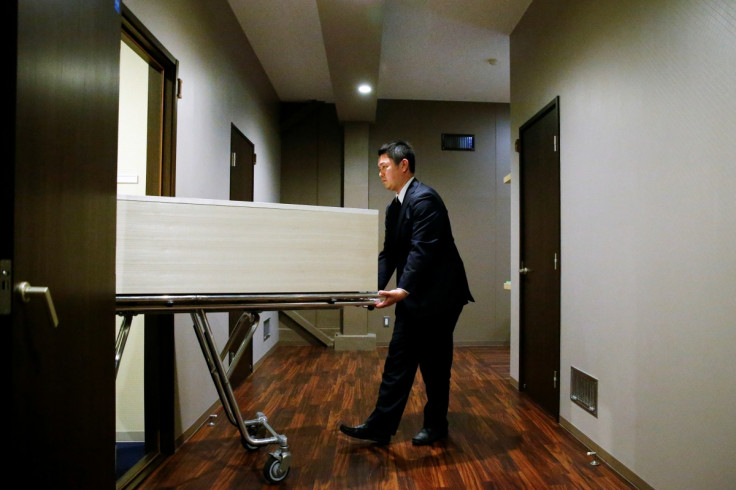Living with the dead: 'Corpse hotels' in Japan's Kawasaki upset locals

How would one feel if one were to have corpses as neighbours? Creepy or scary? Residents in an area in the Japanese city of Kawasaki feel like they are living with the dead.
Many so-called corpse hotels have emerged as a flourishing business in the city following a crunch in crematoriums. Sousou, a building with a plain silver exterior and black draped windows which the neighbours call "creepy", is one such corpse hotel located in a quiet residential area of Kawasaki.
People living in the neighbourhood are upset due to the presence of the morgue and have staged protests with placards and banners, Reuters reported.
A refurbished workshop, Sousou houses piles of dead bodies as the city's crematoriums fail to accommodate the rising need for burial space.
"Crematories need to be built, but there isn't any space to do so and that is creating funeral refugees," Hisao Takegishi, the owner of Sousou, was quoted as saying by Reuters. Takegishi started the morgue business in 2014.
Families can rent a room in Sousou on a daily charge of 9,000 Japanese yen (£58, €74, $84) to keep the body of the deceased relative for up to four days until they find a crematorium. The corpse hotel has around 10 rooms to rent out, where corpses are kept in air-conditioned rooms. Most other such corpse hotels in the city keep dead bodies under refrigeration.

Yoko Masuzawa, 50, is among the residents who are upset by the presence of the morgue in the locality. She lives just behind the morgue and reportedly demanded Sousou's owner to put air ventilation grills above ground level, but was ignored.
Meanwhile, people seeking refuge for their deceased relatives are grateful for a place like Sousou. "I think it's great that families and acquaintances can come and visit before she heads off to the crematorium," 69-year-old Hirokazu Hosaka, whose mother's body was kept in a decorated coffin in Sousou, was quoted as saying.
Encouraged by the overwhelming response to the business and growing demand, Takegishi is planning to extend the concept to other cities.
Government estimates show a rise in the death rate in Japan, with the current death rate of over 20,000 deaths per year expected to rise to about 1.7 million a year by 2040. The country is reportedly expected to have 20 million fewer people by 2040, barring any major influx of immigrants.
© Copyright IBTimes 2025. All rights reserved.



















